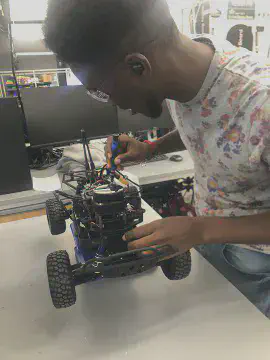CONVOY
Overview
Our overarching goal in this program is two-fold: (1) enhance the robustness of a human-supervised convoy comprised of manned and autonomous vehicles, and (2) manage the risks of cyber-attacks against such systems. Most of these systems consist of embedded computer systems, internal and external networks for communication, sensors that register external input, and advanced AI algorithms that contribute to autonomous decision making. Hence, such systems are under constant threat from cyber-attacks that target vulnerabilities in the software, or even the decision making / classification algorithm itself. Especially in human-device teams such as partially/minimally manned convoys, adversarial-machine-learning/cyber-attacks on autonomous agents may result in significant team performance degradation, confusion in humans, as well as violation of safe operation constraints that keep humans safe. This project aims to advance the capabilities of soldier convoy teaming by managing and mitigating the risks of cyber-attacks against autonomous vehicle technologies. To date, the security of embedded, autonomous systems has been largely overlooked. Despite the increasing research efforts addressing the issue, many unique technical challenges remain open and prevent comprehensive security analysis and protection of such systems. Moreover, these challenges also hinder the ability to reverse-engineer or infiltrate embedded devices in an adversary’s tactical environment.
